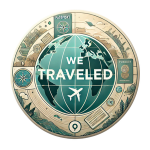Stepping into ancient ruins and walking through centuries-old castles lets you experience history firsthand. Historical travel destinations offer more than just pretty pictures – they tell stories of past civilizations, great empires, and human achievement. In this comprehensive guide, we’ll explore the world’s most remarkable historical sites and provide you with essential tips for making your heritage journey unforgettable.
Ancient Historical Sites That Define Human Civilization
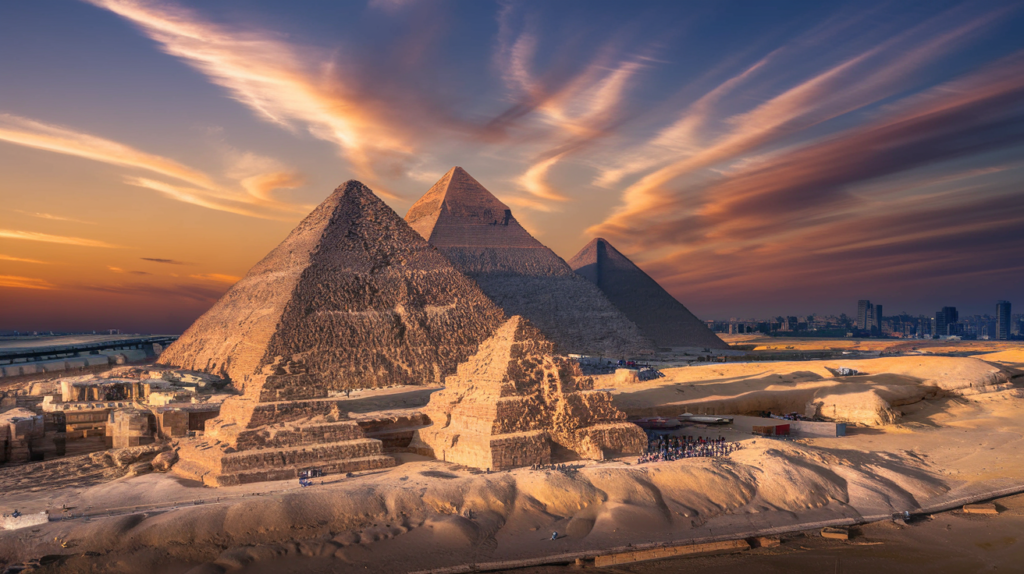
The Magnificent Pyramids of Giza
The Pyramids of Giza stand as Egypt’s most famous landmarks. Built over 4,500 years ago, these massive structures still amaze visitors today. According to National Geographic, the Great Pyramid used over 2.3 million stone blocks, each weighing about 2.5 tons.
Monthly visitor guide:
-
November-February: Perfect weather, busy
-
March-April: Warm, fewer crowds
-
May-September: Hot, lowest prices
-
October: Starting to cool, good deals
Budget tips:
-
Student ID saves 50% on entry
-
Cairo Pass saves money if visiting multiple sites
-
Local buses cost 90% less than tours
-
Early morning vendors offer better prices
Photography spots:
-
Panorama Point (marked on maps)
-
Desert viewing platform
-
Sphinx viewing area
-
Camel rest stops
Local food options:
-
Street food: $2-5
-
Local restaurants: $5-15
-
Tourist restaurants: $15-30
-
Hotel dining: $30+
Machu Picchu: The Lost City of the Incas
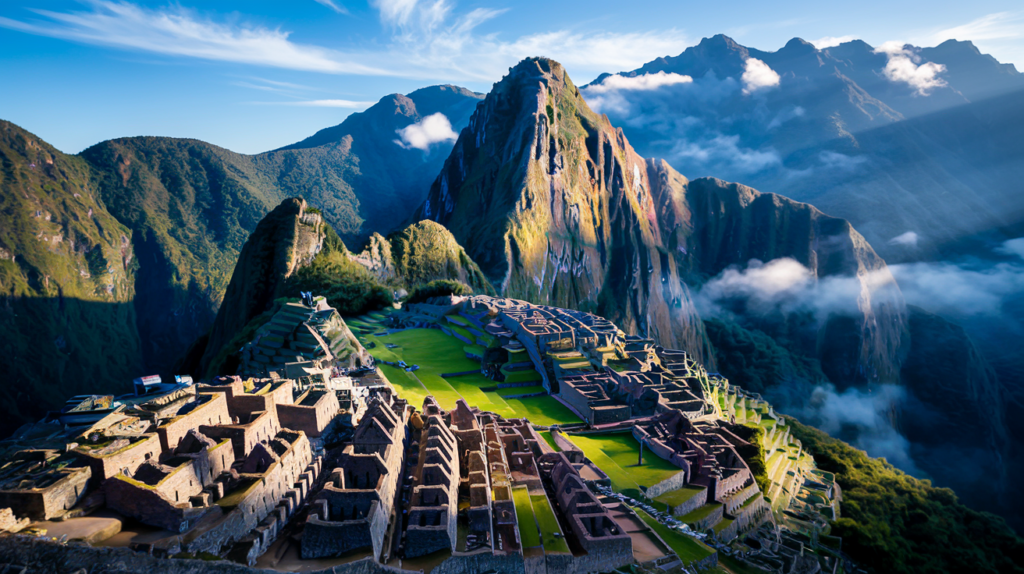
Hidden in Peru’s mountains, Machu Picchu shows the incredible skill of Inca builders. According to UNESCO World Heritage Centre, this 15th-century city sits 7,970 feet above sea level.
Transportation options:
-
Train: $140-250 round trip
-
Bus to site: $24 round trip
-
Hiking: $550-800 with guide
-
Private taxi: $80-100 one way
Best photo locations:
-
Guard House viewpoint
-
Sun Gate (Inti Punku)
-
Agricultural terraces
-
Temple of the Sun
Accommodation types:
-
Aguas Calientes hostels: $15-30
-
Mid-range hotels: $50-100
-
Luxury lodges: $200-500
-
Camping (on trails): $10-20
Petra: The Rose City
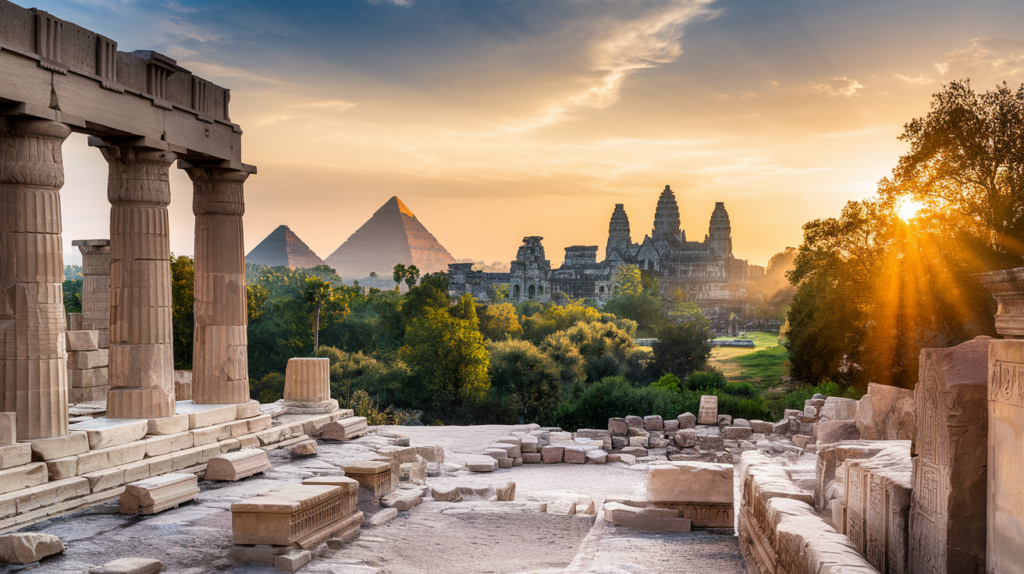
Jordan’s ancient city, carved into rose-colored rock, represents one of humanity’s most impressive architectural achievements. As noted by Smithsonian Magazine, Petra was lost to the Western world for hundreds of years.
Visiting hours:
-
Summer: 6:00 AM – 6:00 PM
-
Winter: 6:00 AM – 4:00 PM
-
Night visits: Monday, Wednesday, Thursday
Essential experiences:
-
Treasury at dawn
-
Monastery hike
-
Siq canyon walk
-
Royal Tombs tour
Local customs:
-
Dress modestly
-
Remove shoes at sacred sites
-
Ask before photographing locals
-
Haggle respectfully
Smart Travel Planning
Budget Management
Daily cost guides:
-
Budget: $50-100
-
Mid-range: $100-200
-
Luxury: $200-500+
Money-saving tips:
-
Book tickets 3-6 months ahead
-
Use local transportation
-
Stay at family-owned places
-
Eat where locals eat
-
Travel during shoulder season
Photography Tips
Essential gear:
-
Wide-angle lens
-
Tripod (where allowed)
-
Polarizing filter
-
Extra batteries
-
Cleaning kit
Best times to shoot:
-
Sunrise: Empty sites, good light
-
Golden hour: Warm colors
-
Blue hour: Dramatic shadows
-
Cloudy days: Even lighting
Cultural Preservation and Respect
Supporting Local Communities
Ways to help:
-
Buy from local artisans
-
Use local guides
-
Stay in local hotels
-
Learn basic phrases
-
Respect customs
Impact tracking:
-
Research tour companies’ local involvement
-
Check hotel sustainability policies
-
Look for fair trade certifications
-
Verify authentic local crafts
-
Monitor carbon footprint
Environmental Protection
Green travel tips:
-
Carry reusable water bottles
-
Stay on marked paths
-
Pack out all trash
-
Use eco-friendly sunscreen
-
Choose green tours
Site preservation:
-
Don’t touch ancient surfaces
-
Avoid flash photography
-
Follow site guidelines
-
Report damage
-
Support conservation efforts
Modern Travel Tools
Essential Apps
Must-have applications:
-
Google Maps offline
-
Currency converters
-
Translation apps
-
Weather alerts
-
Transport booking
Tech essentials:
-
Power bank: 20000mAh minimum
-
Universal adapter
-
Portable Wi-Fi
-
Backup phone
-
Cloud storage
Digital Resources
Online planning tools:
-
Virtual tours
-
Booking platforms
-
Review sites
-
Local event calendars
-
Weather forecasts
Digital safety:
-
VPN service
-
Password manager
-
Backup solutions
-
Emergency contacts
-
Offline copies
Health and Safety
Medical Preparations
Before you go:
-
Travel insurance
-
Vaccinations
-
First aid kit
-
Prescription copies
-
Emergency contacts
Site-specific health tips:
-
High altitude adjustment
-
Heat protection
-
Water safety
-
Food precautions
-
Physical preparation
Security Tips
Safety measures:
-
Register with embassy
-
Copy important documents
-
Use hotel safes
-
Watch belongings
-
Know local emergency numbers
Personal security:
-
Money belt options
-
Secure backpacks
-
Hotel room safety
-
ATM awareness
-
Group travel benefits
Transportation Insights
Getting Around Ancient Sites
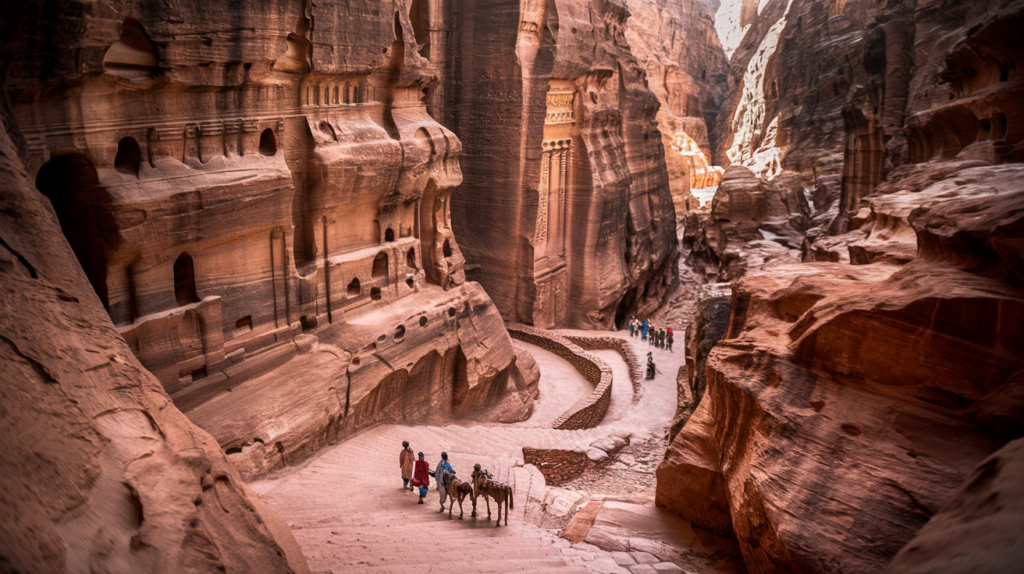
Walking considerations:
-
Wear sturdy shoes
-
Bring water
-
Plan rest stops
-
Know your limits
-
Check accessibility
Site transport options:
-
Golf carts: $10-30
-
Guided tours: $25-100
-
Horse rides: $15-40
-
Electric vehicles: $20-50
Between Destinations
Transport comparison:
-
Trains: Best for Europe
-
Buses: Budget-friendly
-
Flights: Time-saving
-
Car rental: Freedom to explore
Booking strategies:
-
Compare aggregator sites
-
Use local operators
-
Book in advance
-
Consider passes
-
Check cancellation policies
Accommodation Strategies
Staying Near Sites
Location benefits:
-
Early access
-
Better photos
-
Less travel time
-
Local experience
-
Evening views
Price ranges by distance:
-
At site: $200-500
-
1-2 miles: $100-200
-
3-5 miles: $50-100
-
City center: $30-150
Types of Stays
Options overview:
-
Hotels: $50-500
-
Hostels: $10-30
-
Guesthouses: $30-80
-
Apartments: $40-200
-
Camping: $5-25
Booking tips:
-
Read recent reviews
-
Check cancellation policies
-
Verify location
-
Compare amenities
-
Contact directly
Cultural Understanding
Local Customs
Respect guidelines:
-
Dress codes
-
Photo rules
-
Sacred areas
-
Eating habits
-
Greeting styles
Common practices:
-
Remove shoes
-
Cover shoulders
-
Use right hand
-
Ask permission
-
Stay quiet
Language Tips
Essential phrases:
-
Hello/Goodbye
-
Please/Thank you
-
Excuse me
-
Where is…?
-
How much?
-
Help
Communication tools:
-
Translation cards
-
Language apps
-
Picture guides
-
Hand signals
-
Local guides
Final Tips and Recommendations
Before You Go
Checklist:
-
Research history
-
Check weather
-
Book ahead
-
Pack appropriately
-
Download offline maps
During Your Visit
Daily practices:
-
Start early
-
Stay hydrated
-
Take breaks
-
Document experiences
-
Meet locals
After Your Trip
Preservation:
-
Share responsibly
-
Review honestly
-
Support conservation
-
Stay connected
-
Plan return visits
FAQ Section

Common questions:
Q: How long should I spend at each site? A: Plan for:
-
Pyramids: 3-4 hours
-
Machu Picchu: 4-6 hours
-
Petra: 1-2 days
-
Angkor Wat: 2-3 days
-
Great Wall: 4-5 hours
Q: What’s the best season for historical travel? A: Depends on region:
-
Europe: April-June, September-October
-
Asia: November-March
-
Americas: March-May, September-November
-
Middle East: October-April
-
Africa: September-November
Q: How far ahead should I book? A: Booking timeline:
-
Flights: 3-6 months
-
Hotels: 2-4 months
-
Tours: 1-3 months
-
Permits: 6+ months
-
Transport: 1-2 months
Conclusion
Embarking on Your Historical Journey: Final Thoughts
The world’s historical destinations are more than just stops on a travel itinerary – they’re gateways to understanding our shared human story. From the sun-baked stones of the Pyramids to the mist-shrouded peaks of Machu Picchu, each site holds centuries of wisdom, innovation, and human perseverance.
As you plan your journey through history, remember that responsible tourism plays a crucial role in preserving these irreplaceable treasures. Every step you take on ancient grounds is both a privilege and a responsibility. By following sustainable practices, supporting local communities, and approaching each destination with respect and curiosity, you become part of the ongoing story of these remarkable places.
Your preparation will enhance your experience immensely. Whether it’s researching the historical context, learning basic local phrases, or ensuring you have the right equipment, each detail adds depth to your journey. Remember that flexibility is key – sometimes the most memorable experiences come from unexpected discoveries and unplanned moments.
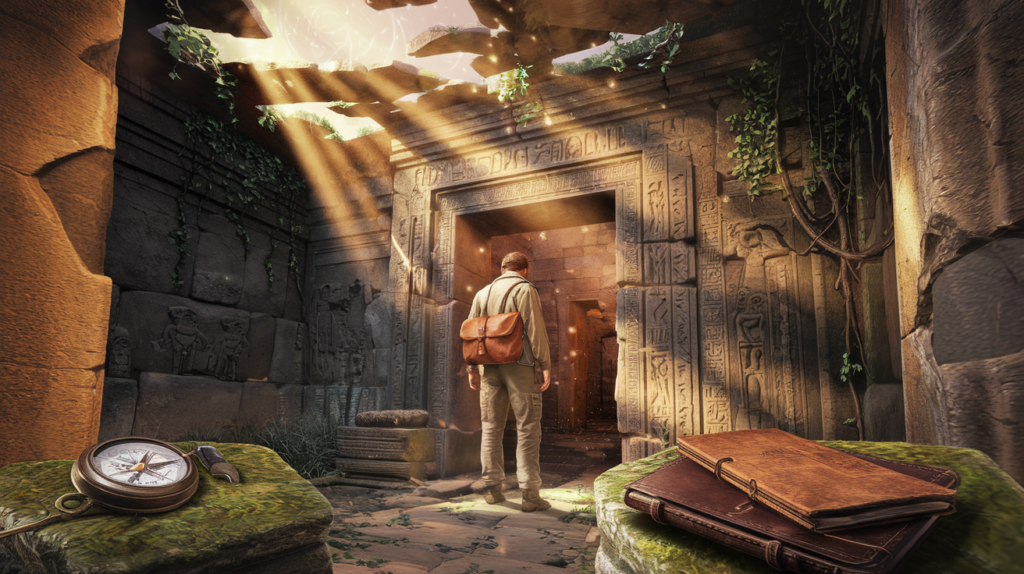
As technology advances, we have unprecedented access to information and tools that can enhance our exploration of historical sites. However, don’t let screens and cameras disconnect you from the raw experience. Take time to simply observe, feel, and absorb the atmosphere of these ancient places. Let yourself imagine the countless others who have stood where you stand, spanning centuries of human experience.
Most importantly, share your experiences thoughtfully. Your stories and insights can inspire others to explore these historical treasures while promoting responsible tourism. Whether through social media, personal blogs, or conversations with friends, your perspective adds to the global dialogue about preserving our shared heritage.
The journey through history is endless, with each destination offering new insights into our past and present. As you set out on your own historical adventure, carry with you the knowledge that you’re not just a tourist – you’re a temporary custodian of humanity’s greatest achievements, responsible for ensuring they endure for future generations to explore and cherish.
Safe travels, and may your historical journey be as enlightening as it is unforgettable.
